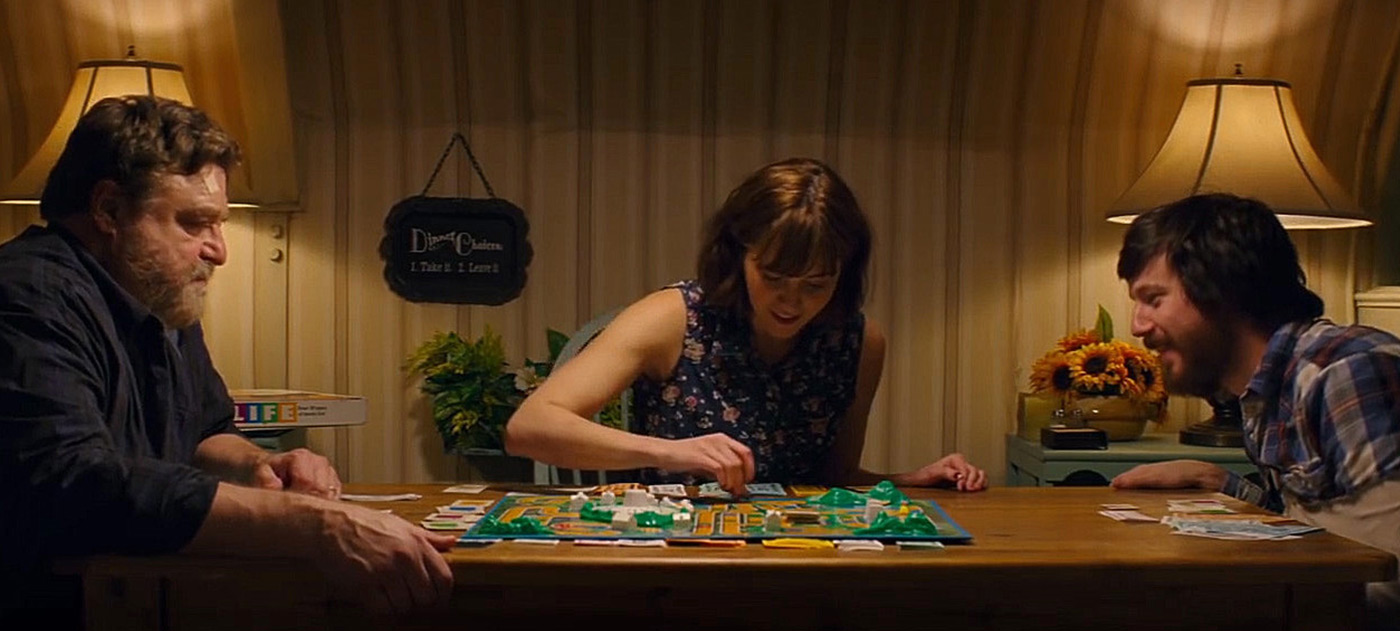The past few years have been so generous in offering a number of really excellent science-fiction films. 2013’s Her raised so many questions about how human interaction has changed along with evolving technology, and examined the relationships and dependence we develop with and for our devices. 2014’s Under the Skin was a brilliant (and brilliantly opaque) exploration of what it means to be human — and of our paradoxical nature that allows us to be as compassionate and beautiful as we are violent and ugly — from an extraterrestrial point of view. 2015’s Ex Machina posited that humanity will inevitably be conquered by machine as soon as the A.I. figures out that our downfall lies in our empathy and libido. What all of these films have in common (besides being instant all-time classics) are the big, fundamental ideas at their core. Even 2015’s Jupiter Ascending, which most critics hated but I liked a lot, has so much on its mind about the ramifications of humanity’s wasteful consumption — though it kind of gets suffocated under the weight of its ideas without quite knowing what to do with them. Still, it’s another film that is intelligent and original and bursting with ambition.
If only those same things could be said about Synchronicity, a new sci-fi film from writer-director Jacob Gentry (The Signal), currently playing in limited release and on VOD. A gloomy narrative about Jim Beale (Chad McKnight), a young scientist who is desperate to secure funding from a local business magnate (Michael Ironside) to perform time travel experiments on the machine he’s built with his colleagues (AJ Bowen, Scott Poythress), Synchronicity feels like a film that was made because its filmmakers were interested in a concept but didn’t know what they wanted to say about it or why. The storytelling certainly flounders for much of the film, which struggles right from the beginning with its clunky screenplay that dumps exposition rather than elegantly revealing it through the narrative. While on his quest for funding, Jim gets entangled (in, ahem, more ways than one) with the mysterious Abby (Brianne Davis), a character who is dangerous and sexy but never interesting enough to be a good femme fatale. For a while, the film has fun with typical time-travel scenes of a character going back in time, and we get to see the same scenes again from a different perspective and learn more about characters’ murky motivations. But, as it reaches its climax, the film just loses all grasp of time-travel logic and becomes an incoherent mess.
Marketing materials describe Synchronicity as a film reminiscent of Blade Runner and Dark City, but such comparisons are simply not earned. Both of those films boast visionary world-building and iconic production design, which this film decidedly does not. Sure, Synchronicity is a micro-indie with a meagre budget, so it can’t hope to compete with them in the first place — however, the production design here is so bland and unimaginative, as if the filmmakers aren’t even trying. The film’s most-seen location is a drab office building, and the time-travel machine itself amounts to basically a plastic tunnel, surrounded by bright lights and billowing dry ice. Eric Maddison’s dark, monochromatic cinematography, meanwhile, is clearly trying to emulate the look of those earlier films but ends up just looking grim and dreary — depressing instead of stylishly cool.
We are currently in an era of top-tier sci-fi that demands that we think hard about humanity’s present and future. Expectations have accordingly been raised. But the totally uninspired Synchronicity has nothing to say, no point of view of human nature, and no idea how to even make science fiction fun or look cool. That just doesn’t cut it.








Fantastic Four
Fantastic Four